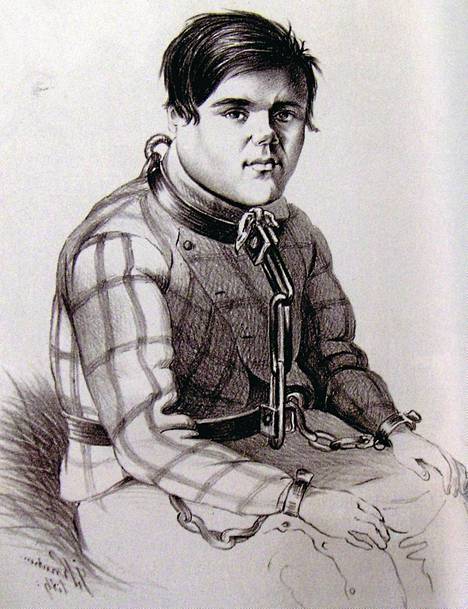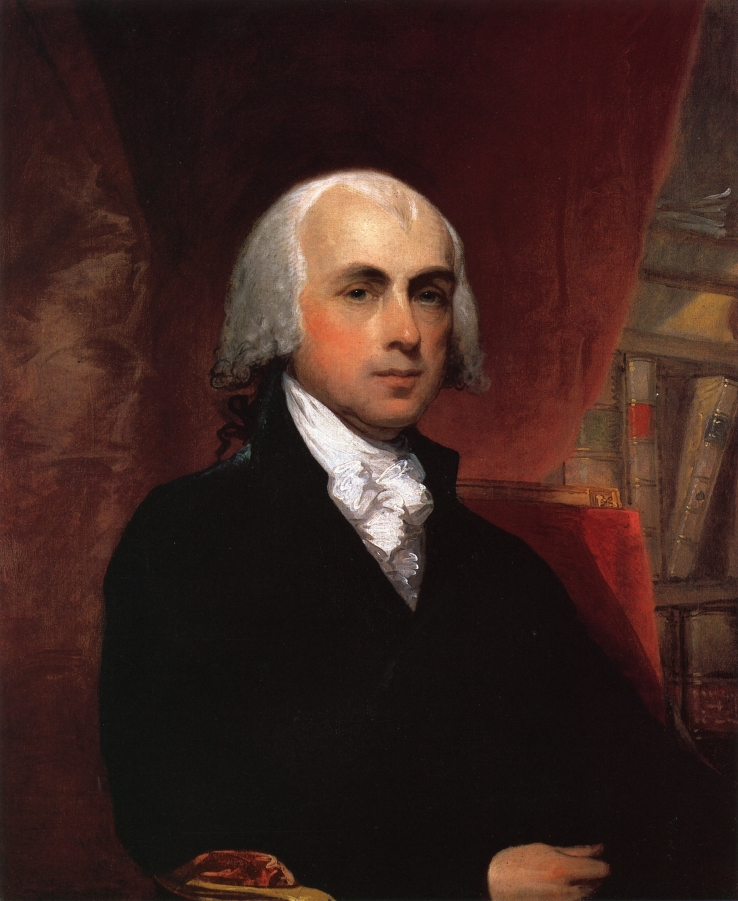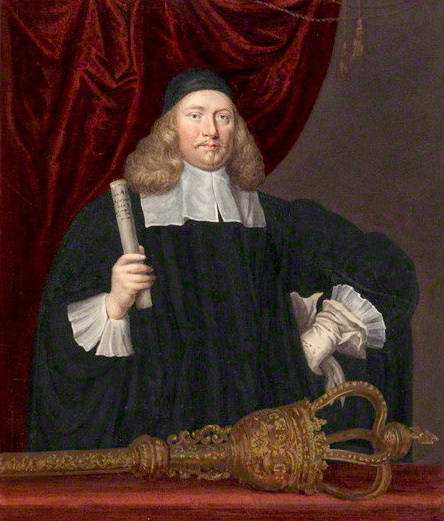|
Sir William Clerke, 8th Baronet
Sir William Henry Clerke, 8th Baronet (25 November 1751 – 10 April 1818) was an English clergyman, rector of Bury, Lancashire. Education Clerke, of North Weston, Thame and an old Buckinghamshire family, was born 25 November 1751. He and his older brother Sir Francis Clerke, 7th Baronet were both educated at John Roysse's Free School in Abingdon, (now Abingdon School). He received his later education at Christ Church, Oxford, and was a Bachelor of Civil Law and fellow of All Souls College, Oxford. Peerage In 1778 he succeeded to the baronetcy on the death of his older brother Francis, who was the favourite aide-de-camp to General John Burgoyne in North America, and was mortally wounded at Saratoga. Career When dying, Francis asked Burgoyne to endeavour, on his return to England, to procure preferment for his brother, who had taken orders. The twelfth Earl of Derby, at the instance no doubt of General Burgoyne, who had married the earl's aunt, presented Clerke to the rect ... [...More Info...] [...Related Items...] OR: [Wikipedia] [Google] [Baidu] |
Bury, Lancashire
Bury (, ) is a market town on the River Irwell in the Metropolitan Borough of Bury, Greater Manchester, England. which had a population of 81,101 in 2021 while the wider borough had a population of 193,846. The town was originally part of the county of Lancashire but has been in the metropolitan county of Greater Manchester since 1974. Bury emerged in the Industrial Revolution as a mill town manufacturing textiles. The town is known for the open-air Bury Market and black pudding, the traditional local dish. Sir Robert Peel was born in the town. Peel was a Prime Minister of the United Kingdom who founded the Metropolitan Police and the Conservative Party. A memorial and monument for Peel, the former stands outside Bury Parish church and the latter overlooks the borough on Holcombe Hill. The town is east of Bolton, south-west of Rochdale and north-west of Manchester. History Toponymy The name ''Bury'' (also earlier known as ''Buri'' and ''Byri'') comes from an Old Engl ... [...More Info...] [...Related Items...] OR: [Wikipedia] [Google] [Baidu] |
Elizabeth Rhodes
Elizabeth Rhodes born Elizabeth Brittan (1759 – 17 April 1836) was a British governess, housekeeper and Methodist leader. Life Rhodes was born in Scotland with the name Brittan. Her mother was from York and her father was a Captain in the Queen's Regiment of Dragoon Guards until 1760. They moved to York where in 1765 her father left the home with their maid. During the 1770s she tried living with her aunt and uncle in Manchester but she returned to York. She rediscovered her father in Surrey where he was living with another woman. Sir James Pennyman, 6th Baronet employed the Rhodes during the later 1770s as a governess to his daughter. Rhodes witnessed the Gordon Riots from Pennyman's home in 1780. Her biographer estimates that she was converted to Methodism in about 1784 by followers in Beverley and York. Sir William Clerke, 8th Baronet employed Rhodes as his housekeeper. Clerke wanted to marry her but he didn't like her Methodism. Elizabeth preferred Methodism and marri ... [...More Info...] [...Related Items...] OR: [Wikipedia] [Google] [Baidu] |
People Educated At Abingdon School
The term "the people" refers to the public or common mass of people of a polity. As such it is a concept of human rights law, international law as well as constitutional law, particularly used for claims of popular sovereignty. In contrast, a people is any plurality of persons considered as a whole. Used in politics and law, the term "a people" refers to the collective or community of an ethnic group or nation. Concepts Legal Chapter One, Article One of the Charter of the United Nations states that "peoples" have the right to self-determination. Though the mere status as peoples and the right to self-determination, as for example in the case of Indigenous peoples (''peoples'', as in all groups of indigenous people, not merely all indigenous persons as in ''indigenous people''), does not automatically provide for independent sovereignty and therefore secession. Indeed, judge Ivor Jennings identified the inherent problems in the right of "peoples" to self-determination, as i ... [...More Info...] [...Related Items...] OR: [Wikipedia] [Google] [Baidu] |
Prisoners Who Died In England And Wales Detention
A prisoner, also known as an inmate or detainee, is a person who is deprived of liberty against their will. This can be by confinement or captivity in a prison or physical restraint. The term usually applies to one serving a sentence in prison. English law "Prisoner" is a legal term for a person who is imprisoned. In section 1 of the Prison Security Act 1992, the word "prisoner" means any person for the time being in a prison as a result of any requirement imposed by a court or otherwise that he be detained in legal custody. "Prisoner" was a legal term for a person prosecuted for felony. It was not applicable to a person prosecuted for misdemeanour. The abolition of the distinction between felony and misdemeanour by section 1 of the Criminal Law Act 1967 has rendered this distinction obsolete. Glanville Williams described as "invidious" the practice of using the term "prisoner" in reference to a person who had not been convicted. History The earliest evidence of the exis ... [...More Info...] [...Related Items...] OR: [Wikipedia] [Google] [Baidu] |
People Imprisoned For Debt
The term "the people" refers to the public or common mass of people of a polity. As such it is a concept of human rights law, international law as well as constitutional law, particularly used for claims of popular sovereignty. In contrast, a people is any plurality of persons considered as a whole. Used in politics and law, the term "a people" refers to the collective or community of an ethnic group or nation. Concepts Legal Chapter One, Article One of the Charter of the United Nations states that "peoples" have the right to self-determination. Though the mere status as peoples and the right to self-determination, as for example in the case of Indigenous peoples (''peoples'', as in all groups of indigenous people, not merely all indigenous persons as in ''indigenous people''), does not automatically provide for independent sovereignty and therefore secession. Indeed, judge Ivor Jennings identified the inherent problems in the right of "peoples" to self-determination, as i ... [...More Info...] [...Related Items...] OR: [Wikipedia] [Google] [Baidu] |
English People Who Died In Prison Custody
English usually refers to: * English language * English people English may also refer to: Culture, language and peoples * ''English'', an adjective for something of, from, or related to England * ''English'', an Amish term for non-Amish, regardless of ethnicity * English studies, the study of English language and literature Media * ''English'' (2013 film), a Malayalam-language film * ''English'' (novel), a Chinese book by Wang Gang ** ''English'' (2018 film), a Chinese adaptation * ''The English'' (TV series), a 2022 Western-genre miniseries * ''English'' (play), a 2022 play by Sanaz Toossi People and fictional characters * English (surname), a list of people and fictional characters * English Fisher (1928–2011), American boxing coach * English Gardner (born 1992), American track and field sprinter * English McConnell (1882–1928), Irish footballer * Aiden English, a ring name of Matthew Rehwoldt (born 1987), American former professional wrestler ... [...More Info...] [...Related Items...] OR: [Wikipedia] [Google] [Baidu] |
Inmates Of Fleet Prison
A prisoner, also known as an inmate or detainee, is a person who is deprived of liberty against their will. This can be by confinement or captivity in a prison or physical restraint. The term usually applies to one serving a Sentence (law), sentence in prison. English law "Prisoner" is a legal term for a person who is Imprisonment, imprisoned. In section 1 of the Prison Security Act 1992, the word "prisoner" means any person for the time being in a Prison#United Kingdom, prison as a result of any requirement imposed by a court or otherwise that he be detained in legal custody. "Prisoner" was a legal term for a person prosecuted for felony. It was not applicable to a person prosecuted for misdemeanor, misdemeanour. The abolition of the distinction between felony and misdemeanour by section 1 of the Criminal Law Act 1967 has rendered this distinction obsolete. Glanville Williams described as "invidious" the practice of using the term "prisoner" in reference to a person who ha ... [...More Info...] [...Related Items...] OR: [Wikipedia] [Google] [Baidu] |
Baronets In The Baronetage Of England
A baronet ( or ; abbreviated Bart or Bt) or the female equivalent, a baronetess (, , or ; abbreviation Btss), is the holder of a baronetcy, a hereditary title awarded by the British Crown. The title of baronet is mentioned as early as the 14th century; however, in its current usage it was created by James I of England in 1611 as a means of raising funds for the crown. Baronets rank below barons, but seemingly above all knights grand cross, knights commander and knights bachelor of the British chivalric orders, that are in turn below in chivalric precedence than the most senior British chivalric orders of the Garter and the Thistle. Like all British knights, baronets are addressed as "Sir" and baronetesses as "Dame". They are conventionally seen to belong to the lesser nobility, although William Thoms in 1844 wrote that: The precise quality of this dignity is not yet fully determined, some holding it to be the head of the , while others, again, rank Baronets as the ... [...More Info...] [...Related Items...] OR: [Wikipedia] [Google] [Baidu] |
1818 Deaths
Events January–March * January 1 ** Battle of Koregaon: Troops of the British East India Company score a decisive victory over the Maratha Confederacy, Maratha Empire. ** English author Mary Shelley publishes the novel ''Frankenstein'' anonymously. * January 3 (21:52 UTC) – Venus Occultation, occults Jupiter. It is the last occultation of one planet by another before November 22, 2065. * January 6 – The Treaty of Mandeswar brings an end to the Third Anglo-Maratha War, ending the dominance of Marathas, and enhancing the power of the British East India Company, which controls territory occupied by 180 million Demographics of India, Indians. * January 12 – The Dandy horse (''Laufmaschine'' bicycle) is patented by Karl Drais in Mannheim. * February 3 – Jeremiah Chubb is granted a British patent for the Chubb detector lock. * February 4 – Writer Walter Scott finds the Honours of Scotland in Edinburgh Castle. * February 5 – Upon his death, King Charles XIII ... [...More Info...] [...Related Items...] OR: [Wikipedia] [Google] [Baidu] |
1751 Births
In Britain and its colonies (except Scotland), 1751 only had 282 days due to the Calendar (New Style) Act 1750, which ended the year on 31 December (rather than nearly three months later according to its previous rule). Events January–March * January 1 – As the Province of Georgia undergoes the transition from a trustee-operated territory to a Crown colony, the prohibition against slavery is lifted by the Trustees for the Establishment of the Colony of Georgia in America. At the time, the Black population of Georgia is approximately 400 people, who had been kept in slavery in violation of the law. By 1790, the enslaved population of Georgia increases to over 29,000 and to 462,000 by 1860. * January 7 – The University of Pennsylvania, conceived 12 years earlier by Benjamin Franklin and its other trustees to provide non-denominational higher education "to train young people for leadership in business, government and public service". rather than for t ... [...More Info...] [...Related Items...] OR: [Wikipedia] [Google] [Baidu] |
List Of Old Abingdonians
Old Abingdonians are former pupils of Abingdon School or, in some cases, Honorary Old Abingdonians who have been awarded the status based on service to the School. The Old Abingdonians also run the Old Abingdonian Club (OA club), an organisation hosted by the school. It was founded in 1743. Born in the 12th century * Edmund of Abingdon, St Edmund Rich (St Edmund of Abingdon) (–1240), Archbishop of Canterbury 1233–1240 (may have attended Abingdon) Born in the 16th century * John Bennet (judge), Sir John Bennet (1552–1627), Chancellor of the Diocese of York, Judge and politician * William Bennet (MP for Ripon), William Bennet (1553–1609), MP and founder of the Bennet scholarship * John Blacknall (1583–1625), land and mill owner and founder of Blacknall bequest * John Mason (diplomat), Sir John Mason (1502–1566), diplomat, spy, and Chancellor of Oxford University * Robert Payne (natural philosopher), Robert Payne (1596–1651), English cleric and academic * John Roysse ... [...More Info...] [...Related Items...] OR: [Wikipedia] [Google] [Baidu] |
Battle Of Waterloo
The Battle of Waterloo was fought on Sunday 18 June 1815, near Waterloo, Belgium, Waterloo (then in the United Kingdom of the Netherlands, now in Belgium), marking the end of the Napoleonic Wars. The French Imperial Army (1804–1815), French Imperial Army under the command of Napoleon, Napoleon I was defeated by two armies of the Seventh Coalition. One was a United Kingdom of Great Britain and Ireland, British-led force with units from the United Kingdom of Great Britain and Ireland, United Kingdom, the United Kingdom of the Netherlands, Netherlands, Kingdom of Hanover, Hanover, Duchy of Brunswick, Brunswick, and Duchy of Nassau, Nassau, under the command of field marshal Arthur Wellesley, 1st Duke of Wellington, Arthur Wellesley, Duke of Wellington. The other comprised three corps of the Kingdom of Prussia, Prussian army under Field Marshal Gebhard Leberecht von Blücher, Blücher. The battle was known contemporaneously as the ''Battle of Mont-Saint-Jean, Belgium, Mont Saint ... [...More Info...] [...Related Items...] OR: [Wikipedia] [Google] [Baidu] |







